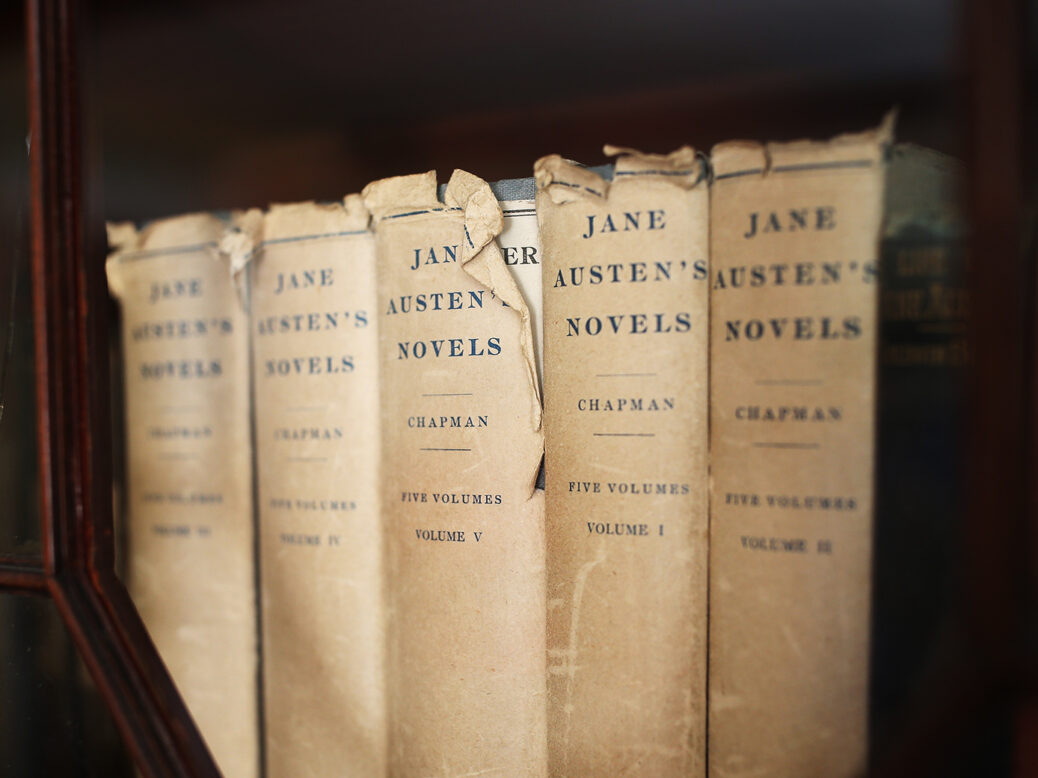
If you think the idea of a university removing Jane Austen from its English literature teaching sounds ridiculous, you would be correct. Which is one of several reasons why it hasn’t happened. Still, you’d be forgiven for assuming it had if you read a headline in a mainstream newspaper stating it as fact.
“Jane Austen dropped from university’s English course to ‘decolonise the curriculum’,” ran a headline in the Telegraph last week, about something that hadn’t really happened at the University of Stirling, sparking a tediously predictable outcry from the usual culture-war commentators and social media faithful. MailOnline opted for “No Pride, lots of Prejudice”, and this non-story made it all the way to Sky News Australia, where, ever-keen to keep pace with the latest developments in Scottish university syllabi, the host Peta Credlin denounced it as “woke lunacy gone mad”.
Except, again, none of this happened in the way it was suggested. As both the Telegraph and MailOnline eventually acknowledged, several paragraphs into their articles, the university’s Special Authors module regularly focuses on a different author: its most recent iteration focused on Jane Austen, and would followed by one focusing on Toni Morrison. A quick search of the University of Stirling’s website confirms that Jane Austen remains where we would probably expect to find her: in the module on British Literature 1700-1830.
If it seems as though the right-wing press retrofitted something to suit the outrage of the day, they probably did. These publications have a track record of cataloguing minute changes in university courses, seizing upon anything that might be linked to “decolonisation”, “anti-racism” or “trigger warnings”. Academics and university staff increasingly refer to this as “FoI trolling” — journalists approaching university department after department on fishing expeditions with blanket freedom of information requests, requesting information about any and all changes to modules or reading lists. They then trawl through course materials, internal communications and minutes of meetings in search of things their readers might be encouraged to get angry about.
In the past few weeks alone, for instance, the Telegraph has run pieces about an internal review at the Glasgow School of Art to increase the diversity of models in life drawing classes; Bristol University allegedly (but, of course, not actually) issuing guidance to staff on pronouns for those who gender identify as cats; and supposed plans at Durham University to “subtract” the “white male viewpoint” from maths.
Read between the lines — or even just beneath the headline — and the articles are linked by the dispiriting sense that these are internal communications by well-meaning people trying to make their universities less unthinkingly prejudiced, dredged up by journalists and blown cynically out of context. So what starts off as an academic highlighting to university management that a tweak in the course syllabus might contribute to their equality and inclusion initiative becomes one more hysterical example of woke ideologues and Black Lives Matter activists tearing down the values of Western civilisation as we know it. In case this conspiracy of moral anarchy wasn’t obvious to their readers, articles like these frequently progress to reminders of unrelated threats to statues of Winston Churchill. And they are determined to frame everything as a new and dangerous threat, even though there is nothing new in these debates — the idea that universities would only consider postcolonial literature, a field that has been taught in English departments at least since the 1980s, as a result of Black Lives Matter protests is absurd.
And it’s not just universities that are caught up in this FoI-request-to-manufactured-outrage pipeline. Heritage bodies, museums, art galleries, schools and cultural institutions are all grist to the outrage mill, in which even the slightest tweak to existing ways of doing things is liable to be seized upon as a red menace waged by a woke elite. The National Museum of Wales is apparently “cancelling steam trains”, according to GB News, because it might write new labels including information about the relationship between industrial technology and empire. Kew Gardens, the National Trust, Shakespeare’s Globe, the Royal Shakespeare Company, the Imperial War Museum, even Cambridge Latin textbooks have all featured in recent weeks in news articles on decolonisation and/or supposed “cancel culture”. Austen seems to be a favourite subject: plans at Jane Austen’s House museum to include more contextual information about the colonialism of the Regency period were spun into global media headlines about “woke madness” and “cancel culture”, despite the museum itself issuing a statement saying that plans to refresh their collections had been misrepresented.
I don’t know where anyone finds the energy to keep being angry about stories that are deliberately distorted out of all proportion. I don’t know why cultured, university-educated journalists aren’t more embarrassed to feign ignorance of how museums or universities work — pretending they don’t know these institutions exist to consider how we relate to the past today, and to engage with new ideas. By naming and shaming any institution that aims to do just that, it’s the newspapers, not our universities, that are manufacturing our “cancel culture”.






